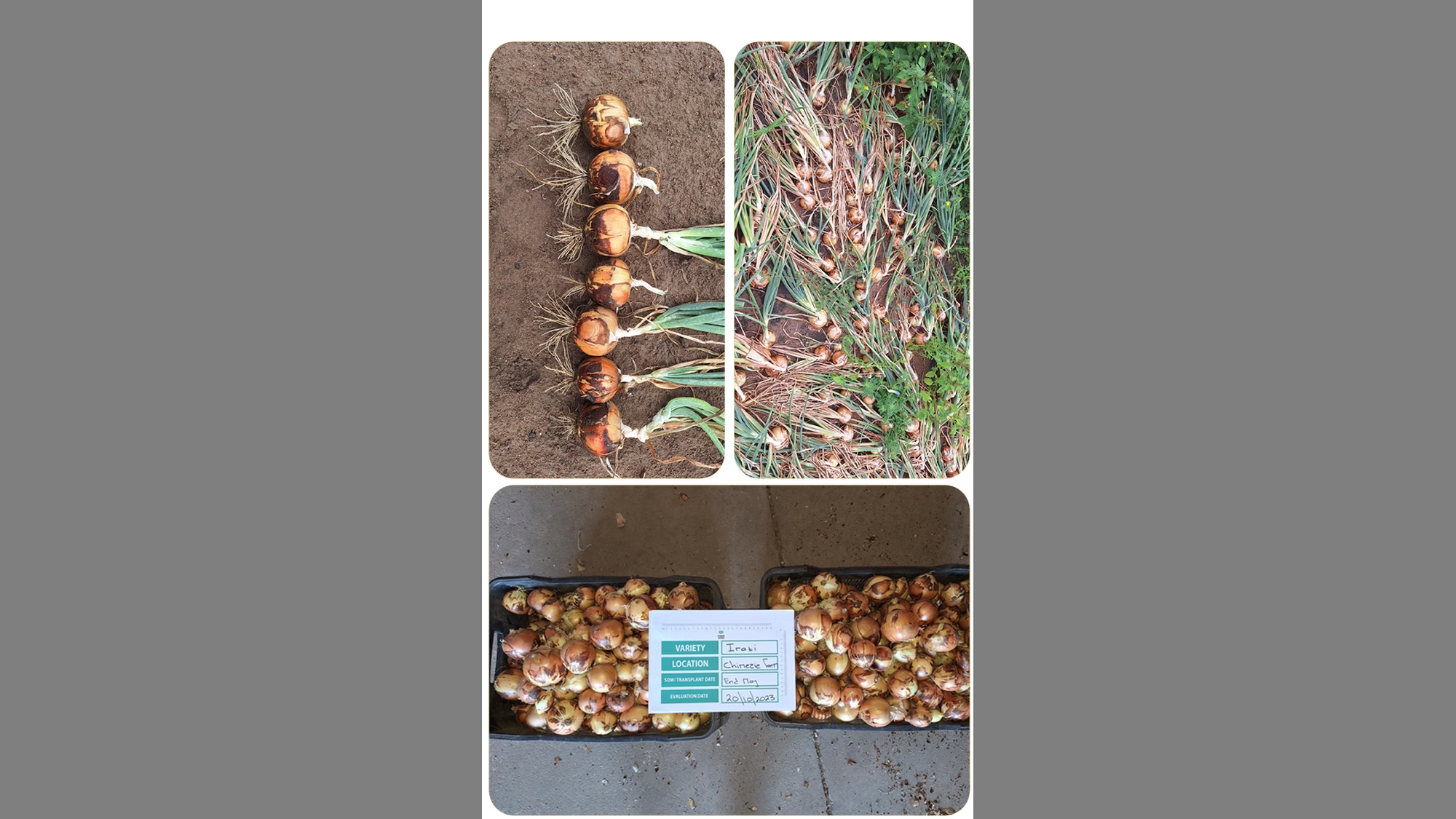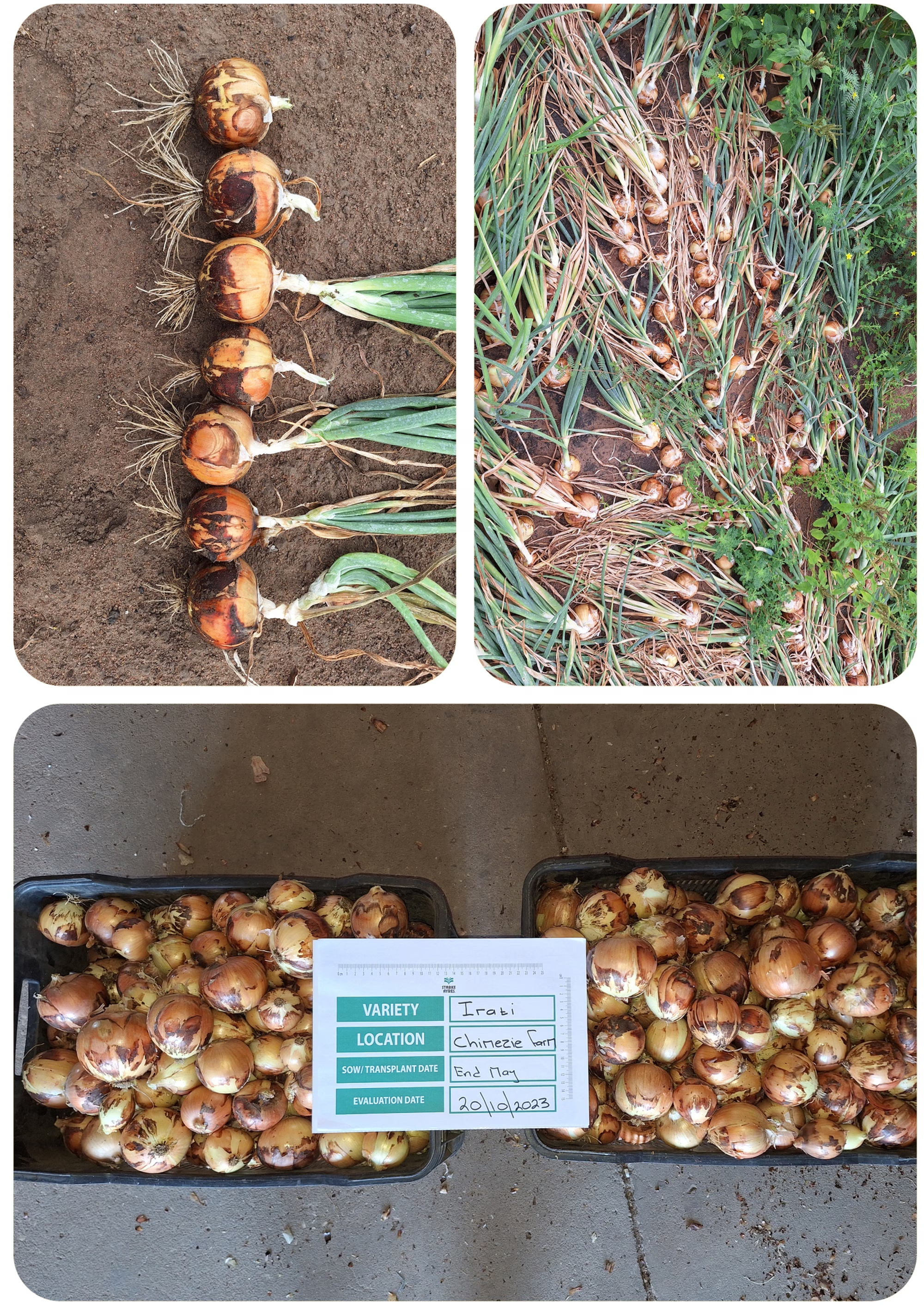
Namibia produces a significant quantity of short-day onions but is unable to plant longer-day-length varieties due to latitude. This means that at some times of the year, the country is dependent on imports. It has become important to try and lengthen the production season so that self-sufficiency in onions is extended. To this end, a trial of the variety Irati was sown in the North Western part of Namibia at Chimezie Farming. The sowing date was towards the end of May and the Irati plants showed very strong leaf growth with a deep green colour. This feature is especially important as the foliage gives protection against the hot Namibian sun. With the harvest in mid-October, sunburn of the bulbs is a serious threat, but the Irati bulbs were well-protected, and sun damage was minimal. At evaluation on October 20th, bulb size was seen to be very uniform, with the majority falling in the large and medium size range. Very few small bulbs were produced, and this resulted in a yield close to 85t/Ha. Irrigation had been gradually reduced as the bulbs matured, giving a slow curing of the bulbs while still in the ground. The bulb colour was dark brown typical of the variety; firmness was outstanding and retention of scale leaves (skins) was good. These features mean an extended shelf life or storage capability which gives more flexibility in marketing strategies. The onions were sown at a rate of 1 million seeds per Ha. Germination was good, giving an even stand, which ultimately resulted in better size uniformity at the end of the crop. The plants showed very well-developed root systems, which in turn gave them strong top growth. Strong roots optimise fertiliser and water uptake, an important factor in light soils and hot conditions. This trial clearly showed Irati to have excellent potential in a late sowing slot in the region. Both quality and yield were outstanding, and more plantings will be made to confirm these findings next season.
